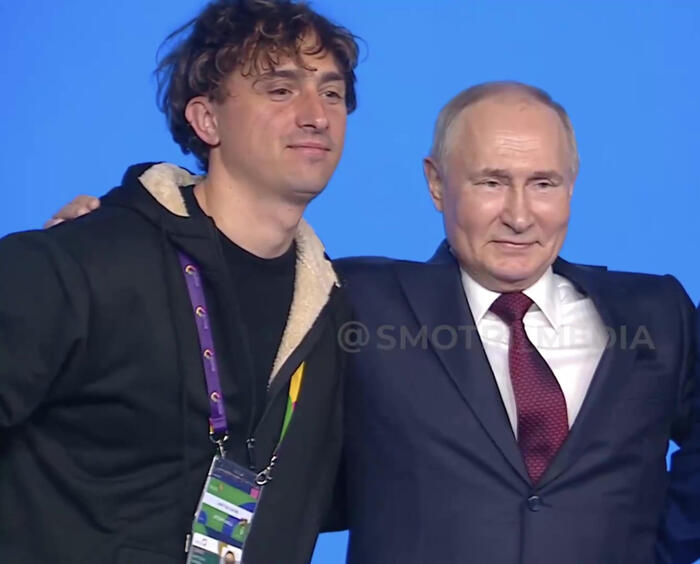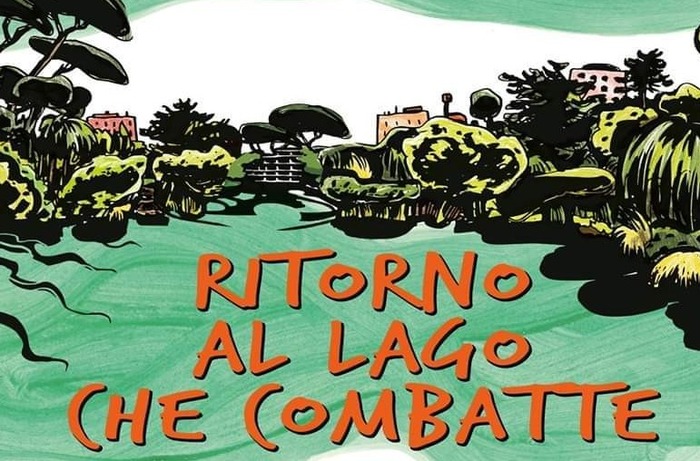Russia wants to show that it is leaving the pandemic behind and that its ailing economy is almost back to normal. The Russian political and economic elite are meeting these days at the Saint Petersburg Economic Forum (SPIEF), despite the fact that the coronavirus figures in the country have not dropped for weeks from the 8,000 infected detected per day, of the 400 deaths, and that the vaccination rate has stalled. The event, known as the Russian Davos, has lost the luster of other times, now that Russia is experiencing the worst moment in its relations with the West due to its territorial appetite and its authoritarian drift.
Under the slogan "Together again", the congress, one of the most massive of the covid era, has limited to 5,000 daily visitors who can access the venue, according to the organizers.
And they all require a negative PCR test for coronavirus to visit the colorful exhibition halls, with an entire wing dedicated to Qatar - a special guest this year -, the facilities of Mercedes, Philip Morris, VTB bank and even the Attorney General's Office of Russia.
The corridors are equipped with thermal cameras, which monitor if any participant has a fever, and also the areas where a rosary of people usually crowd to play table ice hockey against an electronic arm, or to see a robot dog, that turns cartwheels and does mechanical carantoñas to the public.
More information
The case against a US businessman in Russia worries foreign investors
Putin calls on Europe to overcome differences and seal an alliance with Russia
It is a glimpse of the daily reality of Russia, where compliance with health regulations has been relaxed: the required social distance is scarce, masks are mandatory in the forum but few wear them, and most of those who use them do not have covers. nose. But above all, says the Turkish executive Anit Mublu, visiting for the third time, the forum is a "sign of hope that the pandemic is being overcome." Last year the congress was canceled due to the health crisis and this year the hunger to participate was immense, says Lidia Mijeeva, secretary of the Public Chamber of Russia, who points out that the forum has become an unmissable and unique appointment to “debate significant social issues ”.
"No one in the world has held face-to-face events of this magnitude since the outbreak of the pandemic," boasted the governor of St. Petersburg, Alexander Beglov. However, the event has also received criticism: the second largest city in Russia, which will host several Eurocup football matches in the coming weeks and is one of the favorite spots for inland tourism, detects a thousand cases of covid- 19 newspapers.
But despite efforts to show that a return to normalcy is just around the corner, the forum is held this time in a much smaller format (other years it had up to 19,000 registrants) due to travel restrictions, high ticket prices - up to 10,700 euros - and health security concerns. Some 2,000 delegates from 130 countries, mostly from China and Qatar, have been accredited this year, according to data from the Russian government. Some 1,200 companies have also registered to participate in the conferences or seminars in which some 900 panelists will participate, according to data from the organizer, Roscongress.
The SPIEF is a good thermometer of Russia's geopolitical turn towards Asia, the Middle East and Africa, since the West imposed sanctions on Moscow for illegally annexing the Ukrainian peninsula of Crimea in 2014. Thus, this year, among the small group of invited foreign politicians in Saint Petersburg is the Prime Minister of Rwanda, Edouard Ngirente; Domitien Nkihokubwayo, Minister of Finance of Burundi, and Tareck El Aissami, Minister of Petroleum of Venezuela.
Austrian Chancellor Sebastian Kurz, investigated on suspicion of lying to parliamentarians, will participate this Friday by videoconference; Like the Emir of Qatar, Sheikh Tamim bin Hamad Al Zani, in the central session of the congress, which in other years had as its headliner the Indian Prime Minister, Narendra Modi, Xi Jinping, President of China, or his French counterpart , Emmanuel Macron. The highlight of the meeting is a talk led by Russian President Vladimir Putin, who since the beginning of the pandemic has participated in few public events, and which can only be accessed with a special invitation and after having passed another negative PCR of coronavirus .
For Putin, the SPIEF has traditionally been an event to entertain and attract investors. Also to project the image that Russia is open for business. In fact, the Kremlin's rhetoric is that politics doesn't affect business - despite sanctions, Russia's foreign relations, and ruble volatility showing otherwise. "The harsher the rhetoric at the political level, the more reliable and substantive the contact between companies," said Deputy Prime Minister Andrei Belousov.
This year is also a key point prior to the summit that Putin will hold in Switzerland with US President Joe Biden, scheduled for June 16 and with which the Kremlin seeks to iron out tensions and stabilize its economy, but making its red lines clear. . As an appetizer to the summit, Russian Finance Minister Anton Siluanov announced this Thursday at the Forum that Russia will completely remove the dollar from its National Wealth Fund, to try to counter US pressure and under the continuing threat of sanctions. from Washington. Moscow will convert its dollar-denominated assets (now 35%) into euros, yuan and gold. The change, Siluanov has said, will be completed in a month.
The Kremlin has shown more of its red lines these days, with increased repression of political opposition and dissenting voices in the form of new arrests and prosecutions of critical activists;
also sharpening the attacks on the independent media.
This Thursday, the digital economic daily
VTimes
, founded by
refugees
from another historic head that fell last year into the hands of a businessman from the orbit of the Kremlin, has announced its closure pushed, its journalists have said, by the new regulations that designated it as a "foreign agent".
In his dismissal this Thursday, his workers have denounced the constant threat of being prosecuted, which has made it almost impossible to find advertisers and sources.

/cloudfront-eu-central-1.images.arcpublishing.com/prisa/BQBFRV6KIRGU6UQIRWLYEPGT2E.jpg)

/cloudfront-eu-central-1.images.arcpublishing.com/prisa/DH2SXR3OWJG27DGCQVSC5AQDNE.png)

/cloudfront-eu-central-1.images.arcpublishing.com/prisa/RZ36PFONNFLCPKJL2GLTY5NBN4.jpg)







